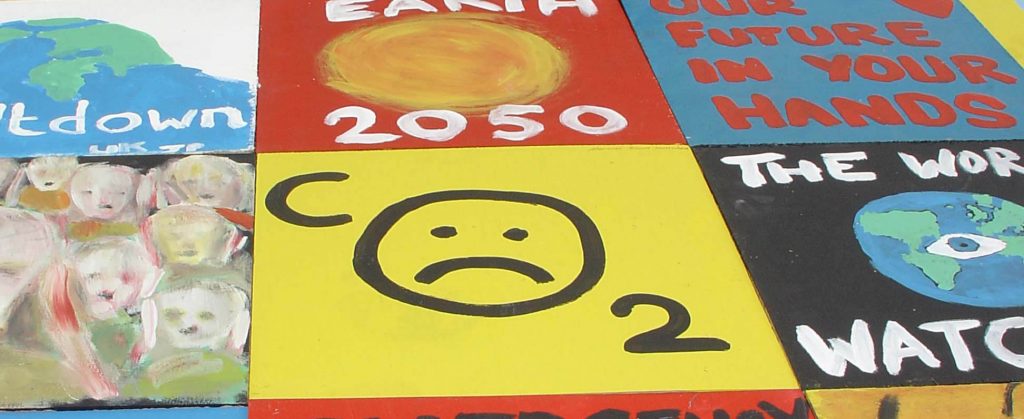Strasbourg/Brussels, 13 November 2007 – EU plans to tackle aviation’s increasing climate change impacts through the Emissions Trading Scheme remain inadequate after MEPs failed to significantly strengthen European Commission proposals in Strasbourg earlier today (13 November) [1]. Aviation is the fastest growing source of carbon dioxide in Europe, and failure to cut it will seriously jeopardise EU plans to cut European emissions by 30 per cent by 2020.
Although the EU Parliament voted to strengthen European Commission plans to bring air travel into the EU Emissions Trading Scheme (EU ETS) [2], they failed to back tougher amendments that could have led to the scheme having a significant impact on aviation’s rising emissions.
Friends of the Earth Europe’s aviation campaigner, Richard Dyer said:
“The European Parliament has failed to back proposals to significantly cut aviation’s impact on climate change. Instead of getting tough on aviation, MEPs have only voted for modest improvements to Commission plans to make aviation part of the ETS. This is inadequate and threatens EU targets for cutting emissions. It’s time our politicians showed real leadership on global warming.”
MEPs voted for the following:
- 25 percent of emissions permits to be auctioned with option to increase later (Friends of the Earth and other NGOs wanted 100 percent from the start of the scheme)
- 2011 start date for all flights (NGOs wanted 2010)
- Pollution permits to be ‘capped’ at 90 percent of aviation carbon dioxide emissions [based on the average of 2004-6 emissions] (NGOs wanted a 50 percent cap).
- A multiplier of at least two, to be used to compensate for the additional impacts of emissions from aircraft at altitude; (NGOs wanted this)
- Exemption from the ETS for planes weighing less than 20,000kg, like many business jets (NGOs wanted no exemptions)
Earlier this year a report by the Tyndall Centre for Climate Change at Manchester University, commissioned by Friends of the Earth [3], revealed that current EU proposals would make little difference to the future growth in aviation emissions, and that the plans should be considerably strengthened. Friends of the Earth Europe insists that other measures are also required to tackle the growth in aviation’s impact on climate change, such as a tax on aviation fuel [4].
“National government must also take action on aviation emissions. They must freeze airport expansion plans, improve high-speed rail services and do more to make the cost of flying reflect the damage that it causes to our environment,” Mr Dyer added.
The current aviation/ EU ETS plan is the first piece of new climate legislation since EU Ministers agreed that the EU needs to cut its carbon dioxide emissions by 30 percent by 2020 in order to avoid catastrophic climate change [5]. A strong scheme would send a clear signal that the EU means business in the run up to the UNFCCC talks taking place in Bali this December [6].
***
NOTES TO EDITORS
1. MEPs voted earlier today on amendments to the European Commission’s proposals. They considered amendments proposed in the Environment Committee’s report (the Liese report) and others put down since.
The European Parliament’s Environment Committee voted in September 2007 to substantially strengthen the Commission’s proposal (the Liese report), however this was still much weaker than earlier proposals (the Lucas Report) that Parliament voted for in July 2006. See Liese report
Lucas report:
http://www.europarl.europa.eu/sides/getDoc.do?pubRef=-//EP//TEXT+TA+P6-TA-2006-0296+0+DOC+XML+V0//EN
Following the MEPs vote the proposal goes to the EU Council of Environment Ministers meeting in December. In 2008, Parliament and Council consider the legislation again (2nd reading).
2. The EU ETS was launched in 2005 and covers around 45 per cent of EU carbon dioxide emissions. Under the scheme, power stations, refineries and heavy industry across Europe are given a limit to how much carbon dioxide they can emit. Participants in the scheme must hold sufficient carbon dioxide permits to match their levels of pollution. Companies that exceed their permits must buy extra allowances from those companies who have managed to reduce their emissions – or pay stiff fines. The EU Emissions Trading Scheme is currently under review. A joint position statement on what improvements environmental groups including Friends of the Earth want to see in the review is here:- http://www.foe.co.uk/resource/consultation_responses/eu_ets_review.pdf
3. http://www.foe.co.uk/resource/press_releases/scientists_warn_that_eu_pl_03092007.html
4. A position statement on the key improvements to the aviation ETS proposal that a coalition of environmental groups including Friends of the Earth want to see is available at:- http://www.foe.co.uk/resource/briefings/aviation_in_the_euets.pdf
5. In March 2007, EU Ministers agreed a 2020 target to unilaterally reduce greenhouse gas emissions by 20 percent from 1990 levels; agreed that a 30 percent cut by industrialized countries is needed to avoid catastrophic climate change; and committed to reducing emissions by 30% if other developed countries do the same and if economically more advanced developing countries contribute adequately according to their respective responsibilities and capacities: Brussels European Council, 5/9 March 2007. Presidency Conclusions.
http://www.consilium.europa.eu/ueDocs/cms_Data/docs/pressData/en/ec/93135.pdf
6. The December United Nations Framework Convention on Climate Change (UNFCCC) Bali conference, will focus on reaching international agreement on concrete steps to be taken in view of a framework to follow the end of the Kyoto Protocol’s first commitment period in 2012.






